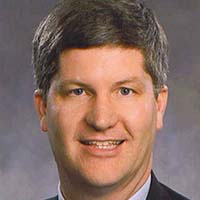Nashotah Criminal Lawyer, Wisconsin
SPONSORED LAWYERS
1-4 of 4 matches. Page 1 of 1
737 Main Street, Delafield, WI 53018
Profile LAWPOINTS™84/100
LAWPOINTS™ measure the overall completeness of a Lawyer's profile. More complete profiles are ranked higher and help visitors select the right lawyer faster.
We help paid Members build more complete and informative profiles.
LAWPOINTS™ do not measure a Lawyer's reputation.
More Info for Lawyers
We help paid Members build more complete and informative profiles.
LAWPOINTS™ do not measure a Lawyer's reputation.
More Info for Lawyers
Thomas J. McClure
✓ VERIFIEDCriminal, Traffic, Personal Injury, Business
Attorney McClure has a general practice serving individuals, families, and small businesses. Early in his career Attorney McClure gained valuable expe... (more)
P.O. Box 180407, Delafield, WI 53018
Profile LAWPOINTS™73/100
LAWPOINTS™ measure the overall completeness of a Lawyer's profile. More complete profiles are ranked higher and help visitors select the right lawyer faster.
We help paid Members build more complete and informative profiles.
LAWPOINTS™ do not measure a Lawyer's reputation.
More Info for Lawyers
We help paid Members build more complete and informative profiles.
LAWPOINTS™ do not measure a Lawyer's reputation.
More Info for Lawyers
Steven James Lownik
Traffic, Social Security, Employment Discrimination, Family Law, Criminal
Status: In Good Standing Licensed: 43 Years
355 Austin Cir, Delafield, WI 53018
Profile LAWPOINTS™40/100
LAWPOINTS™ measure the overall completeness of a Lawyer's profile. More complete profiles are ranked higher and help visitors select the right lawyer faster.
We help paid Members build more complete and informative profiles.
LAWPOINTS™ do not measure a Lawyer's reputation.
More Info for Lawyers
We help paid Members build more complete and informative profiles.
LAWPOINTS™ do not measure a Lawyer's reputation.
More Info for Lawyers
1227 Corporate Center Dr 200, Oconomowoc, WI 53066
Profile LAWPOINTS™34/100
LAWPOINTS™ measure the overall completeness of a Lawyer's profile. More complete profiles are ranked higher and help visitors select the right lawyer faster.
We help paid Members build more complete and informative profiles.
LAWPOINTS™ do not measure a Lawyer's reputation.
More Info for Lawyers
We help paid Members build more complete and informative profiles.
LAWPOINTS™ do not measure a Lawyer's reputation.
More Info for Lawyers
TIPS
Lawyer.com can help you easily and quickly find Nashotah Criminal Lawyers and Nashotah Criminal Law Firms. Refine your search by specific Criminal practice areas such as DUI-DWI, Expungement, Felony, Misdemeanor, RICO Act, White Collar Crime, Traffic and Juvenile Law matters.
LEGAL TERMS
INTERROGATION
A term that describes vigorous questioning, usually by the police of a suspect in custody. Other than providing his name and address, the suspect is not obligat... (more...)
A term that describes vigorous questioning, usually by the police of a suspect in custody. Other than providing his name and address, the suspect is not obligated to answer the questions, and the fact that he has remained silent generally cannot be used by the prosecution to help prove that he is guilty of a crime. If the suspect has asked for a lawyer, the police must cease questioning. If they do not, they cannot use the answers against the suspect at trial.
BAILIFF
A court official usually classified as a peace officer (sometimes as a deputy sheriff, or marshal) and usually wearing a uniform. A bailiff's main job is to mai... (more...)
A court official usually classified as a peace officer (sometimes as a deputy sheriff, or marshal) and usually wearing a uniform. A bailiff's main job is to maintain order in the courtroom. In addition, bailiffs often help court proceedings go smoothly by shepherding witnesses in and out of the courtroom and handing evidence to witnesses as they testify. In criminal cases, the bailiff may have temporary charge of any defendant who is in custody during court proceedings.
FELONY
A serious crime (contrasted with misdemeanors and infractions, less serious crimes), usually punishable by a prison term of more than one year or, in some cases... (more...)
A serious crime (contrasted with misdemeanors and infractions, less serious crimes), usually punishable by a prison term of more than one year or, in some cases, by death. For example, murder, extortion and kidnapping are felonies; a minor fist fight is usually charged as a misdemeanor, and a speeding ticket is generally an infraction.
MISTRIAL
A trial that ends prematurely and without a judgment, due either to a mistake that jeopardizes a party's right to a fair trial or to a jury that can't agree on ... (more...)
A trial that ends prematurely and without a judgment, due either to a mistake that jeopardizes a party's right to a fair trial or to a jury that can't agree on a verdict (a hung jury) If a judge declares a mistrial in a civil case, he or she will direct that the case be set for a new trial at a future date. Mistrials in criminal cases can result in a retrial, a plea bargain or a dismissal of the charges.
GREEN CARD
The well-known term for an Alien Registration Receipt Card. This plastic photo identification card is given to individuals who are legal permanent residents of ... (more...)
The well-known term for an Alien Registration Receipt Card. This plastic photo identification card is given to individuals who are legal permanent residents of the United States. It serves as a U.S. entry document in place of a visa, enabling permanent residents to return to the United States after temporary absences. The key characteristic of a green card is that it allows the holder to live permanently in the United States. Unless you abandon your residence or violate certain criminal or immigration laws, your green card can never be taken away. Possession of a green card also allows you to work in the United States legally. Those who hold green cards for a certain length of time may eventually apply for U.S. citizenship. Green cards have an expiration date of ten years from issuance. This does not mean that your permanent resident status expires. You must simply apply for a new card.
CONTINGENCY FEE
A method of paying a lawyer for legal representation by which, instead of an hourly or per job fee, the lawyer receives a percentage of the money her client obt... (more...)
A method of paying a lawyer for legal representation by which, instead of an hourly or per job fee, the lawyer receives a percentage of the money her client obtains after settling or winning the case. Often contingency fee agreements -- which are most commonly used in personal injury cases -- award the successful lawyer between 20% and 50% of the amount recovered. Lawyers representing defendants charged with crimes may not charge contingency fees. In most states, contingency fee agreements must be in writing.
PROBABLE CAUSE
The amount and quality of information police must have before they can arrest or search without a warrant or that a judge must have before she will sign a searc... (more...)
The amount and quality of information police must have before they can arrest or search without a warrant or that a judge must have before she will sign a search warrant allowing the police to conduct a search or arrest a suspect. Reliable information must show that it's more likely than not that a crime has occurred and the suspect is involved.
EAVESDROPPING
Listening to conversations or observing conduct which is meant to be private, typically by using devices that amplify sound or light, such as stethoscopes or bi... (more...)
Listening to conversations or observing conduct which is meant to be private, typically by using devices that amplify sound or light, such as stethoscopes or binoculars. The term comes from the common law offense of listening to private conversations by crouching under the windows or eaves of a house. Nowadays, eavesdropping includes using electronic equipment to intercept telephone or other wire communications, or radio equipment to intercept broadcast communications. Generally, the term 'eavesdropping' is used when the activity is not legally authorized by a search warrant or court order; and the term 'surveillance' is used when the activity is permitted by law. Compare electronic surveillance.
SELF-INCRIMINATION
The making of statements that might expose you to criminal prosecution, either now or in the future. The 5th Amendment of the U.S. Constitution prohibits the go... (more...)
The making of statements that might expose you to criminal prosecution, either now or in the future. The 5th Amendment of the U.S. Constitution prohibits the government from forcing you to provide evidence (as in answering questions) that would or might lead to your prosecution for a crime.
SAMPLE LEGAL CASES
State v. Kramer
... Id. ¶ 11 A primary question the court of appeals addressed was whether evidence of Wagner's
subjective belief that criminal activity might be taking place operated to preclude his conduct
from coming within the scope of his community caretaker function. Id., ¶ 13. ...
State v. Harris
... I. Did the State violate Wis. Stat. § 971.23(1) (the criminal discovery statute) or the ... Stat. §
971.23(1) (the criminal discovery statute) by failing to disclose timely the defendant's request
to put on a particular pair of pants? If so, was the defendant prejudiced by the violation? III. ...
State v. Schaefer
... 2 After permitting Schaefer's interlocutory appeal, the court of appeals certified the following
question to this court: "Does a criminal defendant have a subpoena right to obtain and copy police
investigation reports and nonprivileged materials prior to the preliminary hearing ...
FILTER BY:
- Free Consultation
- Male
- Female
- Suspended
PRACTICE AREAS 30
- Accident & Injury
- Bankruptcy & Debt
- Business
- Civil & Human Rights
- Consumer Rights
- Criminal
- -DUI-DWI
- -Expungement
- -Felony
- -Misdemeanor
- -RICO Act
- -White Collar Crime
- -Traffic
- -Juvenile Law
- Divorce & Family Law
- Employment
- Environmental Law
- Estate
- Government
- Health Care
- Immigration
- Industry Specialties
- Intellectual Property
- International
- Lawsuit & Dispute
- Mass Torts
- Motor Vehicle
- Real Estate
- Tax
- Other



